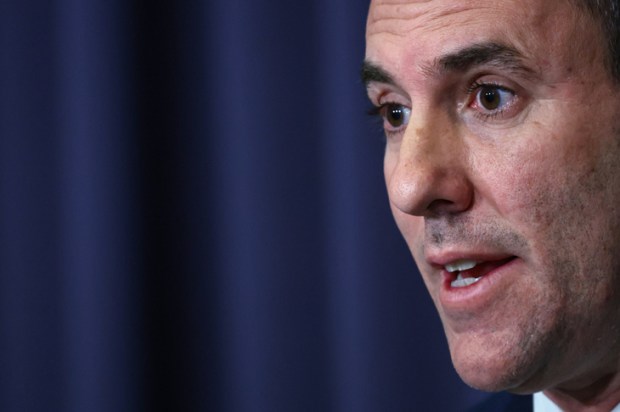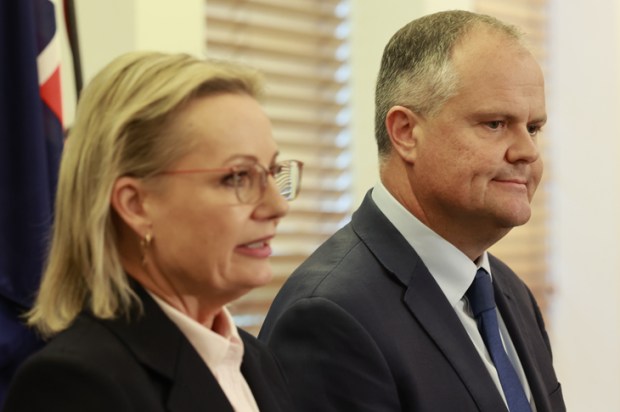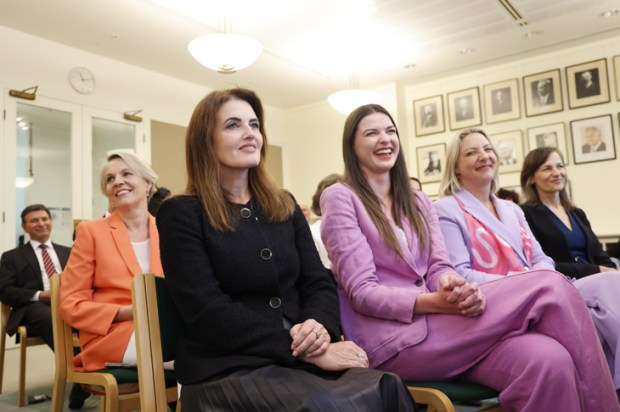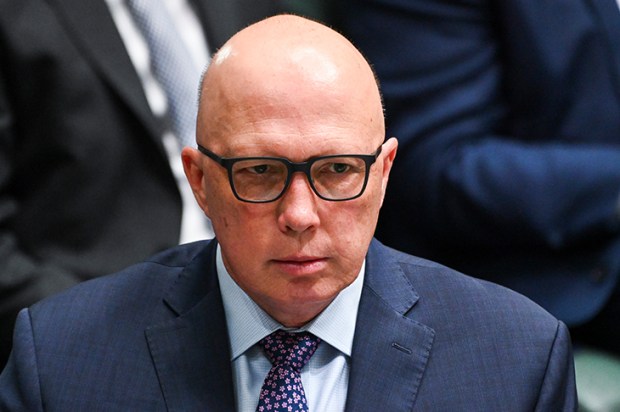The Liberal Party Economic Research Unit, operating from its bijou office in Karl Marx House in Canberra, has been responsible for many cutting-edge reforms that have immeasurably benefitted Australia. But none has come anywhere near, or, to use a more vernacular Australian expression, none has come within ‘coo-ee’ of the monumental contribution to human wisdom that the Unit has recently made with this one reform I announce today. That may sound like an exaggeration, but it is only a recognition that there has been nothing remotely rivalling the freshness, originality and practicality of this major project. Nor has any other research so clearly identified the factors that really motivate human conduct. What has happened is that the PM and Treasurer have invented, not merely an economic policy and certainly nothing as mundane as a balanced budget, but an entirely new theory of economics. In keeping with the notion of resilience that is its hallmark, this new theory has been given the name Snap Back!
The theory is that in a national crisis such as the coronavirus pandemic, the better nature of the citizenry will come to the fore and that in the national interest they will accept handouts and subsidies, allow the government to pay their wages and child-minding fees, agree that they should be permitted to stay in rented premises without paying the rent and accept government largesse in a hundred and one other inventive ways. This is quite contrary to their natural inclinations and is a burden the people will accept only in times of national emergency. However, and this is the real genius of the concept, when the crisis is over and the need for such generosity comes to an end, the PM will appear on national TV, say ‘Snap Back!’ and click his fingers, whereupon people will return to the old attitudes with which they are more comfortable and resume paying their own way and standing on their own feet.
Pressed for details on how this theory would work in practice, the PM and his Treasurer explained that businesses had grown accustomed during the recent crisis to both the size of subsidies from the government and the ease with which they had been granted. They had thus come to believe there was no need to succeed when the government could always be relied on to save the company from bankruptcy with another generous loan or grant. Happily, however, research at the Unit had shown that when asked, and when the glad cry ‘Snap Back!’ echoed through the land, business would instantly forgo all subsidies and handouts and cheerfully go back to making their own way in the world, motivated solely by the animal spirits that are at the heart of the capitalist experience.
Next, a sample of parents had showed that they felt there was no need for the government to continue paying their child-care fees and they would willingly resume paying the fees themselves.
The Treasurer then cited research from the renowned Eastern University of Wuhan showing that employers had grown tired of having their employees’ wages paid by the government and that they would prefer to pay the wages themselves from their profits and, in some commendable cases, would also pay interest on the generosity the government had shown over the previous five years.
Tenants were also showing early signs of a similar change of heart. It seemed that there was an innate quality of restitution inherent in their hearts and minds, a feeling that it was demeaning to have someone else put a roof over their heads if they could do so themselves and pay for it. Accordingly, there was a gathering view among tenants that they should pay their rent, including any arrears and that the state should allow landlords to evict them if the rent had not been paid or an unreasonable amount of damage had been done to the premises during student parties.
Even the students conceded there was a limit to the amount the government could be expected to pay for classes in Rikki Healing and Ecuadorian Folkdancing as well as JobKeeper and that they would prefer to pay the fees themselves as a contribution to the success of Snap Back! They were also offering as responsible members of the community to pay back on modest terms at least part of their previous allowances, as much as they had previously been prepared to accept them.
Some preliminary inquiries had also shown that private hospital operators would quickly snap back into the new zeitgeist of standing on their own feet instead of leaning on the government. A survey conducted for the government by the renowned activist group ThrowUp! had asked the operators: ‘Would you prefer Option A, a guaranteed income from the government, with no work and no worries, or Option B, competition, headaches, costs, unions and no subsidised patients?’ Virtually all had replied ‘Option B.’ Airlines had likewise said they preferred the cut and thrust of muscular competition without any subsidies or talk of government ownership.
Finally, some of the plain speakers in the government had really made their mark when they said it was time the public got some backbone and that they should snap out of the Pollyanna world of handouts they inhabited and Snap Back! into the world of paying their own way. This was received so well that the government now felt the people would willingly take up the burden the government had hitherto been carrying for them.
But the final stamp of approval has come from the London School of Economics which has announced that in recognition of discovering this remarkable progression from dependency to self-reliance, the theory should henceforth be known as the Morrison Frydenberg Curve.
Got something to add? Join the discussion and comment below.
You might disagree with half of it, but you’ll enjoy reading all of it. Try your first month for free, then just $2 a week for the remainder of your first year.














